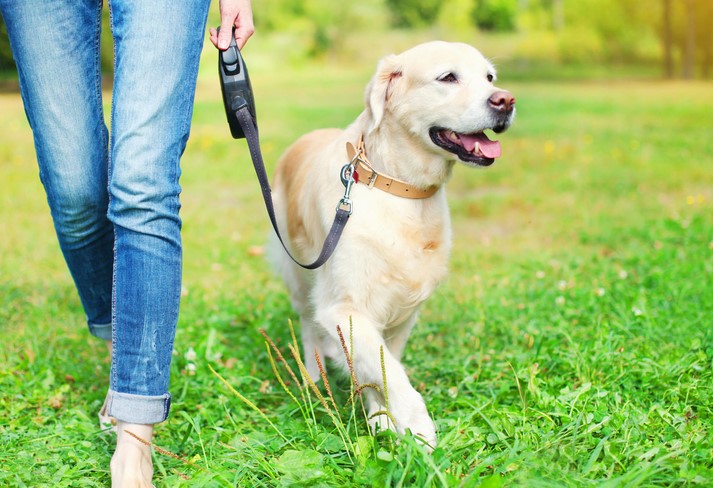Guinea pigs are known for their adorable appearance and gentle temperament, making them beloved pets for many. But how long do these furry friends typically live? On average, guinea pigs live for around 5 to 7 years, with some living up to 8 years or even older. However, there are several factors that can affect the lifespan of guinea pigs.
Genetics, diet, exercise, and environment all play a role in determining how long a guinea pig will live. Genetics can impact a guinea pig’s susceptibility to certain health issues, while a balanced diet rich in vitamin C, fresh vegetables, and hay can help prevent health problems that could shorten their lifespan. Regular exercise and providing a clean and stress-free environment are also important in maintaining a guinea pig’s health and increasing their lifespan.
As a pet owner, you can take steps to increase your guinea pig’s lifespan by ensuring they have a healthy diet and regular exercise, as well as scheduling regular check-ups with a veterinarian to address any health issues early. By taking proper care of your furry friend, you can enjoy their company for many years to come.
Natural Lifespan of Guinea Pigs
Guinea pigs are known for their short lifespan compared to other pets. On average, they live for around 5 to 7 years. However, it’s not uncommon for some guinea pigs to live up to 8 years or even older. The lifespan of guinea pigs can vary depending on various factors including genetics, environment, diet, and exercise.
It’s important to keep in mind that the natural lifespan of guinea pigs is relatively short. Therefore, it’s important to make the most out of the time you have with your furry friend. Spending quality time together and providing them with proper care can help to ensure they live a happy and healthy life.
Guinea pig owners should pay close attention to any changes in their pet’s behavior or health. Regular veterinary check-ups can also help to identify and address any potential health issues before they become a serious problem. Overall, providing your guinea pig with proper care and attention can help to increase their lifespan and maintain their overall health and well-being.
Factors That Affect Guinea Pig Lifespan
The lifespan of a guinea pig can be influenced by various factors such as genetics, diet, exercise, and environment. Genetics can play a significant role in how long these furry friends live. Certain breeds are prone to certain health issues that can shorten their lifespan. In terms of diet, guinea pigs require a balanced and nutritious diet to ensure their longevity. Feeding them food that is high in vitamin C, vegetables, and hay can help prevent health issues that may impact their lifespan.
Exercise is another critical factor that can impact the lifespan of a guinea pig. Providing them with ample space to run around and play can help to ensure they get the necessary exercise to keep their bodies healthy. A stress-free environment is also crucial to guinea pigs’ health and longevity. A clean and spacious living area, free from potential predators and other sources of stress, can help to prolong their life.
Apart from these factors, regular check-ups with a veterinarian can also help identify any health issues that may impact your pet’s lifespan. To increase your guinea pig’s lifespan, it’s essential to provide them with a healthy diet, regular exercise, and a stress-free living environment.
Genetics
The genetics of a guinea pig can play a key role in their lifespan. As with any living creature, some breeds have a predisposition to certain health issues which can impact their longevity. For example, Abyssinian guinea pigs may be more susceptible to dental problems that can lead to more serious conditions, while Peruvian guinea pigs may be more prone to eye infections that can shorten their lifespan.
It’s important to research the breed of guinea pig you are getting to understand any potential health issues that may arise. A veterinarian can also provide guidance on how to best care for your pet’s specific needs. While genetics may play a role in your guinea pig’s lifespan, by providing them with a healthy diet, regular exercise, and a stress-free environment, you can help to increase their overall health and potentially extend their lifespan.
Diet
A balanced diet is essential for the health and longevity of guinea pigs. They are herbivores and require a diet high in vitamin C to stay healthy. Fresh vegetables, such as red pepper, broccoli, and kale, are excellent sources of vitamin C. Hay is also an important part of their diet as it helps to maintain their digestive system and keeps their teeth healthy. It is advisable to provide around 80% hay and 20% fresh vegetables in their diet. Guinea pigs also require a small amount of pellets, which should not be high in fat or protein. They should have access to clean, fresh water at all times. Feeding them sugary or high-fat treats can lead to obesity and other health issues that can shorten their lifespan.
- A balanced diet should include:
- Hay: Timothy, Orchard Grass, or Meadow Hay
- Fresh vegetables: Red pepper, broccoli, kale, spinach, and carrots
- Pellets: Low-fat and low-protein pellets
- Fresh and clean water
It is important to consult with a veterinarian to determine the best diet for your guinea pig as their nutritional requirements may vary depending on their age, weight, and health condition.
Exercise
Regular exercise is crucial for the overall health and well-being of guinea pigs. These furry friends need ample space to run around and play to keep them active. Lack of exercise can lead to obesity, cardiovascular issues, and other health problems that can impact their lifespan.
Giving your guinea pig plenty of room to roam around is essential. While they can live in cages, it’s important to let them out for playtime every day. You can also provide them with toys and obstacles to keep them stimulated and active.
Another way to ensure your guinea pig is getting enough exercise is to let them engage in free-range playtime outside of their designated living space. Supervised play outside on grassy areas can be a great way to provide your pet with plenty of fresh air and exercise.
It’s important to remember that guinea pigs are social animals and need the company of other guinea pigs to thrive. Having multiple guinea pigs can encourage play, and they will have exercise partners to keep them active and healthy.
In summary, regular exercise is vital for the health and longevity of guinea pigs. By providing them with ample space to run around and play, you can help keep them active and happy and increase their lifespan in the process.
Environment
The environment a guinea pig lives in plays an important role in their lifespan. Guinea pigs are social animals and need space to move around, explore, and play. A clean and spacious living area can help prevent disease, which can affect a guinea pig’s lifespan. Ensure that their cage is free from potential predators such as cats or dogs. Stress can also negatively impact a guinea pig’s health, so it is essential to provide them with a peaceful environment.
Additionally, proper ventilation and good air quality are essential factors that impact a guinea pig’s lifespan. It is crucial to keep their living area well-ventilated, as poor air quality can cause respiratory problems.
Furthermore, keeping their living space clean and regularly changing their bedding can help prevent mold and bacterial infections that could affect their health and ultimately their lifespan. In summary, providing a clean, stress-free, and well-ventilated living environment for your guinea pig can greatly increase their lifespan.
How to Increase Your Guinea Pig’s Lifespan
To ensure that your guinea pig lives a long and healthy life, it’s important to take certain measures. One of the most important things you can do is provide them with a healthy diet. A diet rich in vitamin C, fresh vegetables, and hay can help prevent health issues that may shorten their lifespan. It’s also essential to make sure that your guinea pig gets regular exercise. This can include providing them with space to run around and play, and opportunities to climb and explore.
In addition to diet and exercise, your guinea pig’s living environment is also crucial. A clean and spacious living area, free from stress and potential predators, can help to prolong their life. Be sure to clean their cage regularly, and create a comfortable and safe space for them to call home.
Regular check-ups with a veterinarian are also essential to ensure that your guinea pig is in good health. They can help to identify and address any health issues before they impact your pet’s lifespan. By taking these steps, you can help to increase your guinea pig’s lifespan and keep them happy and healthy for years to come.










